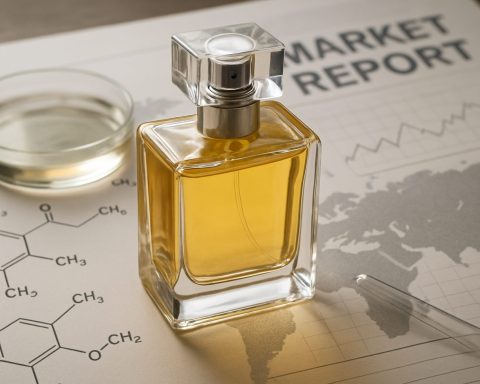- Porsche is pioneering luxury and sustainability by recycling EV batteries into valuable raw materials.
- The process involves shredding defunct batteries to extract “black mass,” containing crucial elements like nickel, cobalt, manganese, and lithium.
- Meticulous refinement of “black mass” ensures high-purity materials for new batteries, aligning with Porsche’s quality standards.
- Recycled materials will be used in crafting future battery cells, blending tradition with innovation.
- Porsche’s initiative anticipates upcoming EU battery regulations, setting a benchmark in sustainable automotive practices.
- Beyond complying with regulations, Porsche’s circular economy model exemplifies redefining luxury through environmental responsibility.
- The project showcases Porsche’s commitment to reducing environmental impact and securing stable raw material supplies.
Luxury cars and environmental stewardship may seem an odd pairing, yet Porsche drives them to intersect with flair and purpose. Deep in Stuttgart, the iconic automaker stirs a silent revolution. A multi-phase pilot program embarks on the path to transform high-voltage electric vehicle (EV) batteries from waste into treasure troves of essential raw materials.
Picture this: mechanical giants delicately shredding defunct batteries from test vehicles. What emerges is not mere waste, but a valued substance known as “black mass.” This gritty mix is laden with vital elements—nickel, cobalt, manganese, and lithium. These key ingredients are the heartbeat of tomorrow’s electric powerhouse engines. From the remnants, circa 65 tonnes of granulate await their renaissance.
The magic doesn’t stop there. The mystical “black mass” is meticulously refined, extracting the purity essential for the high standards Porsche’s name demands. The elements are separated with a scrupulous eye, ensuring that future batteries are as consistent and clean as their origin story is novel.
Envision how these meticulously recovered materials will pilot a new epoch in automotive manufacturing. A phase shrouded in anticipation awaits—Porsche will craft battery cells infused with recycled content to power future models, blending heritage with a forward-thinking ethos. Here lies a profound narrative of commitment: sustainability and luxury fused inextricably.
As the European Union prepares for stringent battery regulations, Porsche takes a proactive stance. By 2031, recycling, traceability, and recycled content will no longer be luxuries but legal norms. Yet, Porsche’s project not only aligns with these impending mandates but sets a gold standard in sustainable innovation. This visionary scheme underlines Porsche’s resolve to mitigate environmental impacts while ensuring a secure and stable supply of raw materials, untouched by the caprice of geopolitical tides.
Beyond mere compliance, Porsche’s circular economy model is a jewel in its sustainability strategy crown. Herein lies a vital takeaway: Redefining luxury means reshaping responsibility. As Porsche leads the charge, it paves a road where grandeur and green futures ride side by side.
Porsche’s Green Revolution: How Luxury Meets Sustainability in Automotive Innovation
Introduction
Porsche, a name synonymous with luxury, is now leading a silent revolution in environmental stewardship. At its core is a pioneering pilot program aimed at transforming what was once considered waste—high-voltage electric vehicle (EV) batteries—into valuable resources. This initiative not only enhances sustainability but reshapes the future of automotive manufacturing, blending luxury with ecological responsibility.
Innovative Recycling Process
The heart of Porsche’s endeavor lies in the sophisticated process of extracting valuable materials from used EV batteries. Known as “black mass,” this gritty substance contains essential metals such as nickel, cobalt, manganese, and lithium, which are reclaimed and refined with meticulous precision.
How-To: From Waste to Black Mass
1. Collection: Gather defunct batteries from test vehicles.
2. Shredding: Carefully shred the batteries to unlock the “black mass.”
3. Extraction: Utilize advanced techniques to separate and purify the vital elements.
4. Refinement: Polish the raw materials to meet Porsche’s high standards.
5. Crafting: Infuse recycled content into new battery cells for future Porsche models.
Real-World Applications
This innovative recycling process is more than just an environmental initiative; it’s a real-world application that paves the way for the automotive industry:
– Quality Assurance: Ensures that future Porsche batteries maintain consistent quality and performance.
– Resource Efficiency: Reduces dependency on mining new materials, conserving natural resources.
– Cost-Effectiveness: Lowers manufacturing costs by utilizing existing materials.
Market Trends and Predictions
As the European Union tightens battery regulations by 2031, mandating recycling, traceability, and recycled content, Porsche is ahead of the game. Their pilot program not only adheres to these future norms but sets a benchmark for sustainable innovation within the luxury segment.
Industry Trend Highlights
– Circular Economy Adoption: More automakers will likely adopt circular economy principles, reducing waste and conserving resources.
– Technological Advancements: Continued advancements in recycling technologies will further refine processes and improve efficiency.
– Increased Investments: Expect increased investments in sustainable manufacturing practices from leading automotive brands.
Challenges and Limitations
While pioneering, Porsche’s model is not without challenges:
– High Initial Costs: Sophisticated recycling technologies require significant upfront investment.
– Technological Barriers: The complexity of battery chemistry poses hurdles in material separation and refinement.
Actionable Recommendations
For automotive enthusiasts and environmentally conscious consumers alike, consider these proactive steps:
– Support Brands Committed to Sustainability: Choose automakers that prioritize environmental stewardship.
– Stay Informed: Follow industry developments in sustainable practices and recycling technology.
– Advocate for Regulations: Encourage the enforcement and adoption of stringent environmental standards.
Conclusion
Porsche’s initiative represents a pivotal moment in the automotive industry, where luxury and sustainability intersect. By redefining what it means to be responsible, Porsche paves the way for a future where grandeur and green ideals coexist harmoniously.
For more insights into automotive innovation and sustainability, visit Porsche’s official site.











